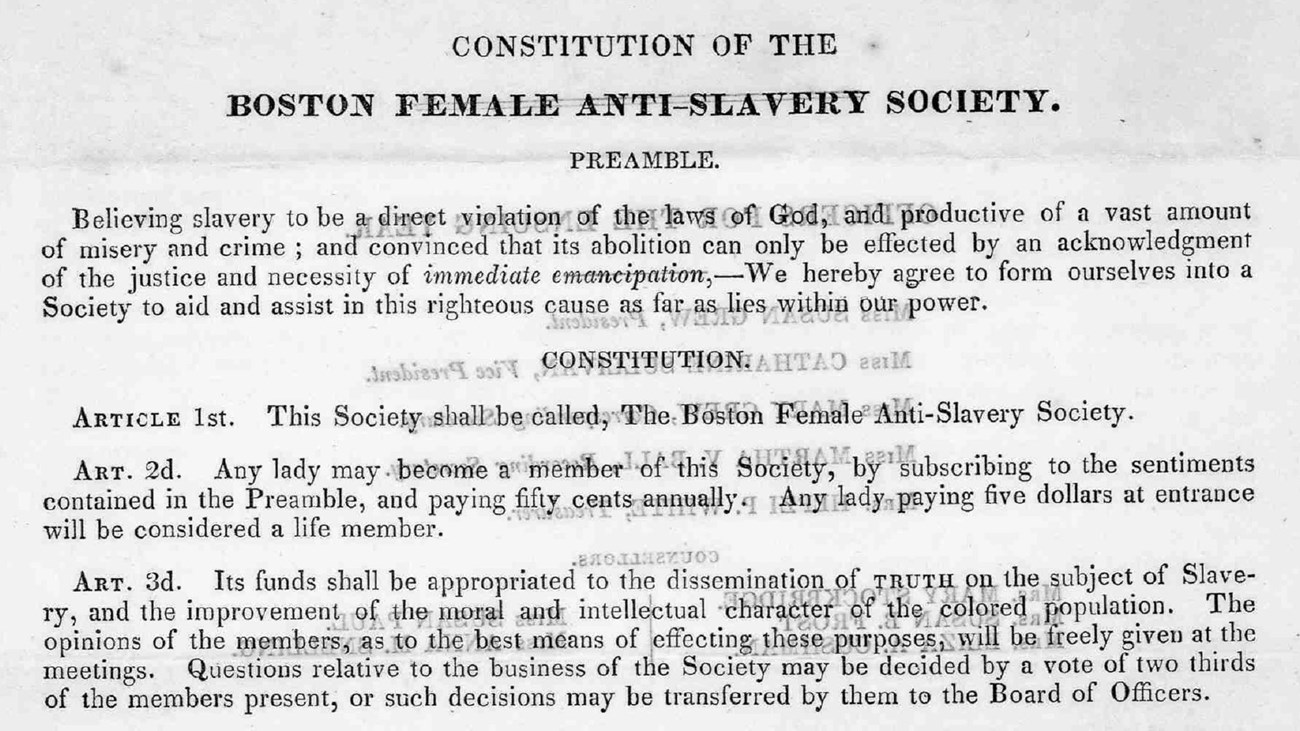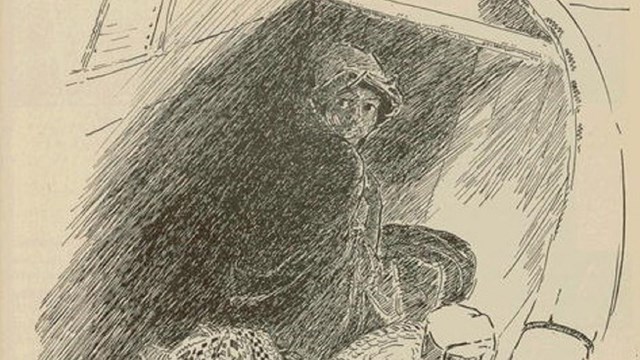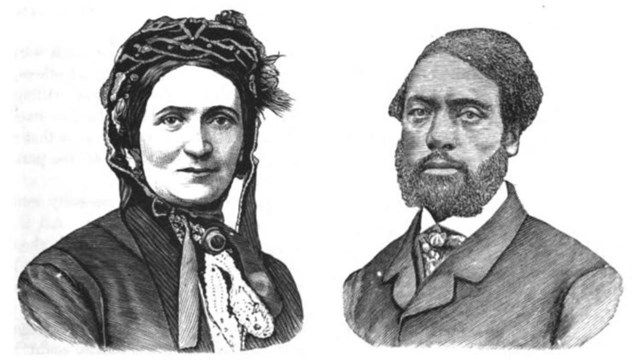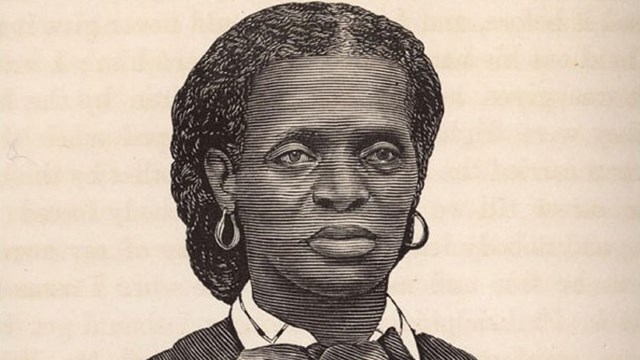
"Long years before Boston [had] begun to think of subways and tunnels 'The Underground Railroad' ran its all but noiseless way through city and suburbs, for the benefit of such fugitive Southern slaves as came this way." - "Old Passages of Boston's ‘Underground Railroad’ Uncovered," Boston Evening Transcript, March 31, 1926. The mystique of the Underground Railroad has long captivated the imagination of our nation. While Americans recall with fondness the legendary figure of Harriet Tubman, they otherwise fail to recognize and remember the contributions of women to the Underground Railroad. In Boston, the Underground Railroad became inseparable from the community of free Black Bostonians who resided on the north slope of Beacon Hill.1 At the heart of that community stood Boston's women. Although legally tied to their husbands and fathers in economic matters, Boston's women boldly aided freedom seekers entering their community, becoming critical contributors to the Underground Railroad.2 We invite you to explore the many contributions of Boston's women to the Underground Railroad through the following resources. 
Witnessing, Organizing, Taking Action
Explore the different ways Boston women contributed to the efforts of the Underground Railroad. 
Elizabeth Blakeley
Read about Elizabeth Blakeley's escape to freedom on a vessel from North Carolina to Boston. 
William and Ellen Craft
Explore a story map about William and Ellen Craft's remarkable journey to freedom from Macon, Georgia to Boston, Massachusetts and beyond. 
Jane Johnson
Learn about Jane Johnson's bold escape to freedom that led to her testifying against her enslaver in court. Explore Their StoriesFootnotes
|
Last updated: January 6, 2023
